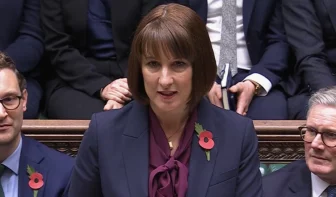
Chancellor Rachel Reeves faces a series of critical decisions ahead of her first autumn budget, with reports suggesting that the property sector may be in line for significant tax changes.
According to multiple sources, Reeves is considering the introduction of a new national property tax targeting homes valued over £500,000 — part of a broader review of how property is taxed in the UK.
Potential property tax shake-up
The Treasury has reportedly been tasked with exploring a national property tax that could eventually replace stamp duty on owner-occupied homes. Officials are also examining the feasibility of overhauling council tax by replacing it with a locally administered property tax — a move aimed at strengthening the financial footing of local authorities.
While no final decisions have been made, any tax reforms are expected to be unveiled at the autumn budget, scheduled for Wednesday 26 November.
Capital gains tax under review
The government is also said to be reviewing capital gains tax (CGT) exemptions for high-value residential properties. Currently, owner-occupiers do not pay CGT when selling their primary residence. However, The Times reports that this relief could be withdrawn for homes above a certain threshold, potentially subjecting some sales to CGT rates of 18% (basic-rate taxpayers) or 24% (higher-rate taxpayers).
Stamp duty reform
Another major reform under consideration is the abolition of stamp duty — the tax levied on property purchases. Unlike CGT, stamp duty is applied at the time of purchase, based on the value of the property.
Currently:
No stamp duty is paid on homes under £125,000.
First-time buyers are exempt on homes up to £300,000.
Higher-value transactions are subject to tiered rates.
Replacing stamp duty with a proportional national property tax could be one potential alternative, particularly on homes exceeding £500,000 in value.
Council tax overhaul
Council tax reform is also on the table. The existing system is based on property values from 1991 — or what they would have been worth at that time for newer homes — creating inconsistencies across the country.
Because council tax is set at the local authority level, two households in identically valued homes can pay vastly different amounts depending on their location. Critics argue this outdated valuation method and the lack of standardisation make the current system unfair and increasingly unfit for purpose.
A reformed, value-based local property tax could resolve these disparities but would likely be politically and administratively complex to implement.
Treasury remains tight-lipped
Despite the growing speculation, the Treasury has declined to comment on any of the proposed reforms. However, with a Budget fast approaching and increasing pressure to raise revenue while supporting public services, major property tax changes could soon be on the horizon.
November statement could prove to be ‘one of the toughest second budgets in living memory’
Read the orginal article: https://propertyindustryeye.com/rachel-reeves-faces-key-choices-on-property-tax-before-autumn-budget/


